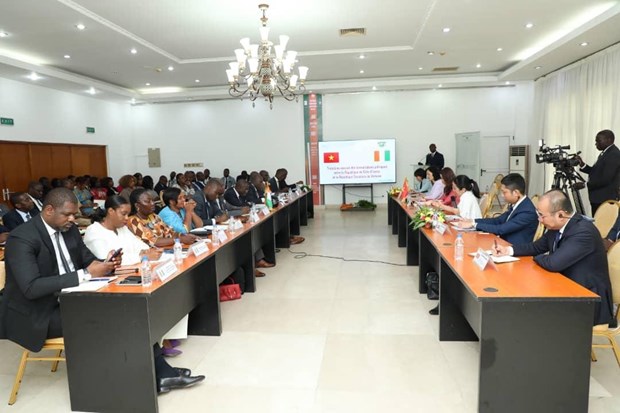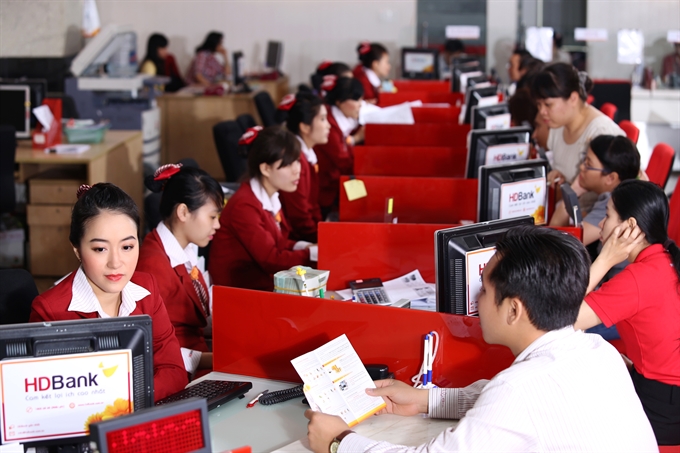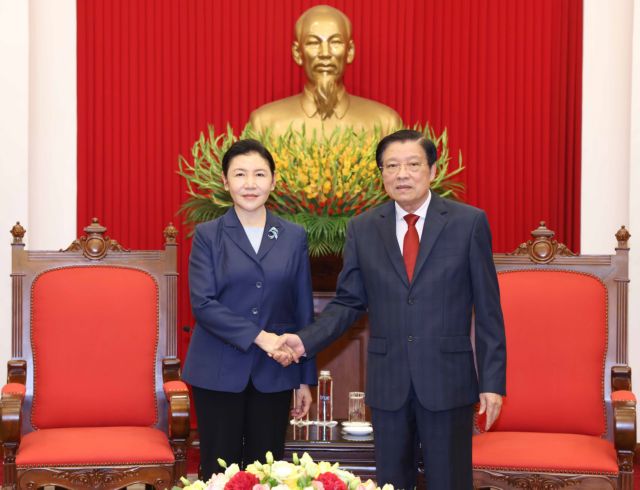 Economy
Economy

The Trans-Pacific Partnership agreement would bring opportunities for Việt Nam, but they would not by themselves turn into benefits or market strength.
 |
| "TPP would help attract more foreign investors to Viet Nam for setting up their production chains, enable the nation to become a part of their manufacturing and supply chain base, and help Vietnamese firms become part of the chains" Khanh said. — Photo VNA |
HCM CITY (VNS) — The Trans-Pacific Partnership agreement would bring opportunities for Việt Nam, but they would not by themselves turn into benefits or market strength, Deputy Minister of Industry and Trade Trần Quốc Khánh has said.
| On the sidelines of the second Việt Nam International Advertising Equipment and Technology Exhibition, or VietAd 2016, which opened at Hà Nội Exhibition Centre yesterday, local experts spoke about benefits and challenges for local companies in advertising industry when the TPP comes into effect.Nguyễn Thanh Đảo, general secretary of the HCM City Advertising Association (HAA), said that the TPP agreement would bring opportunities for the northern advertising firms to exchange and study new technology in this field.Nguyễn Tiến Thành, manager of ASEAN Import-export and Technology JSC told Viet Nam News that now domestic ad firms have more opportunity to work with local and foreign companies. Currently, 80 per cent of equipment and products were imported from China and Japan. In the near future, they planned to import equipment from other advanced countries. Thanh said the company hoped the TPP agreement would help importers get more incentives on import tariffs.According to industry insiders, Việt Nam’s advertising industry is still young compared with other countries in the area in terms of creativity and equipment, but 90 per cent of equipment is imported currently.The Việt Nam Advertising Association reports the advertising industry’s annual revenue is estimated at around US$1 billion. -- VNS |
It would depend much on how Việt Nam takes advantage of the pact and copes with related problems, and only with appropriate efforts would the country be able to achieve its potential and overcome challenges, Khánh, who was the head of Việt Nam’s TPP negotiation delegation, said.
Speaking at the “TTP Dialogue – Envisioned growth opportunities for businesses in Việt Nam” conference yesterday, he said the TPP would facilitate trade with and investment in the 12 countries involved in the pact, who account for 40 per cent of the world’s GDP.
It would help attract more foreign investors to Việt Nam for setting up their production chains, enable the nation to become a part of their manufacturing and supply chain base, and help Vietnamese firms become part of the chains, he said.
Besides investment and trade commitments, the new generation free trade agreement requires much higher standards of international compliance, including creating a fair and non-discriminatory business environment, which would help create a sound trade and investment environment in the country, he said.
Trần Đắc Sinh, chairman of the HCM Stock Exchange, said the TPP is expected to benefit the bourse as companies, including in the supporting industries, take advantage of trade benefits.
Portfolio investment from abroad would also increase sharply, creating a momentum for market growth, he said.
Khánh said: “Several studies have found that the TPP would create huge economic opportunities for Việt Nam, but these researches were based on the premise ‘with other conditions remaining stable’.
“If the world economy suddenly faces difficulty, our economy will be affected.
“Opportunities cannot by themselves turn into benefits; it depends on the efforts made by all: the more you prepare, the more successful you will be.”
Besides, opportunities always go hand in hand with challenges due to fierce competition, and businesses need to be courageous to compete and should take the initiative to innovate to improve their competitiveness, he said.
“Businesses should not compete only on price, but also quality and prestige.”
He urged Vietnamese firms to focus on improving their management and adopt modern marketing methods.
To enjoy the benefits of TPP, Vietnamese goods would have to comply with regulations on origins, quality, and others, he said.
For instance, the “yarn-forward” rule in the garment and textile sector could be a challenge in the short term, but in the long term it would help the domestic industry develop a complete supply chain, he said.
In the last two years investment in the fibre and yarn making has shot up, equalling the entire previous investment, he said.
Nguyễn Công Ái, deputy general director of KPMG, said, “A number of Taiwanese and South Korean investors have poured hundreds of millions of dollars in Việt Nam’s textile and dyeing sectors.”
Local companies have also stepped up investment in the sectors, he said, adding they have done extensive studies to thoroughly understand the “yarn-forward” rule to capitalise on opportunities to boost exports to markets like the US and Japan when the TPP comes into effect, he said.
The seminar was organised by the Việt Nam Chamber of Commerce and Industry in collaboration with KPMG and HOSE. — VNS









